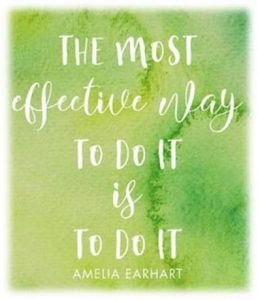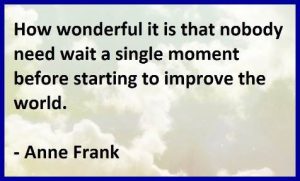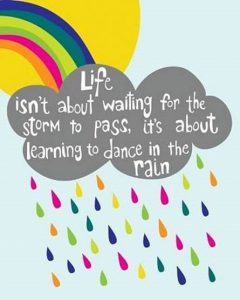I woke up to a dark, cloudy morning on Wednesday and felt gloomy for much of the day, brooding about past occasions when I had felt stuck in bad situations. Although that happened many years ago, it still bothered me that I had let myself get into such a negative pattern rather than taking timely and constructive action to deal with problems as they came up.
The sky brightened after a while, and I went rowing with my husband after work. We had to go slowly and carefully because the river was full of large logs and other debris that had floated downstream since the last time we were there.

By then it was late in the day, but I still hadn’t managed to shake off the gloomy thoughts. As we returned to the dock, it occurred to me that some impulsive decisions I had made recently could be seen as related to that old pattern—or, more specifically, could be seen as my subconscious mind forcing the necessary action to break the pattern and ensure nothing like that would ever happen again.
“Okay, subconscious mind,” I said to myself, continuing the internal dialogue, “if you’ve been so busy protecting me from myself by any means necessary, then what was your reason to leave me feeling so totally blah the entire day?”
“To recognize the pattern, of course.” The answer popped into my head right away. It was not followed by a “Duh,” but sounded as if it might easily have been. Then the gloomy feelings instantly vanished, in what had to be the fastest mood swing ever. I felt fine while putting the boat away and getting into the car.
By the time I got home, though, my back muscles had tightened up for no apparent reason, making it hard for me to move around all evening. I don’t ordinarily have back problems, and I certainly hadn’t exerted myself too much when I was rowing very slowly around that obstacle course of monster logs. So what the heck was going on here?
Then another thought came to mind, which was that this drama had Dame Shadow’s fingerprints all over it. As I described in a December blog entry, Dame Shadow is one of my angrier and more defensive past selves. She feels like it’s her responsibility to protect me from the world’s evils when she thinks I’m not doing enough to take care of myself, which is often.
When I last had an imaginary conversation with Dame Shadow as she was getting ready to charge into battle with an army of mythological creatures in a landscape from an empire-building computer game, I came to the conclusion that she wanted recognition for her efforts, and I promised to show respectful appreciation the next time she had something to say. Gratitude for a sore back wasn’t quite what I’d had in mind, but that seemed to be where things stood for now. So I took a moment to meditate and let my mind quiet down. Then I thanked the Dame for kindly offering advice and told her that I was sorry, but I didn’t quite grasp what she was trying to tell me.
She didn’t step out into the light of my conscious mind, but I heard the fabric of her long skirts rustling somewhere not far away. “What or whom are you carrying on your back? You may want to think about that,” she remarked cryptically; and that was all I got out of her.
I realized that my back did indeed feel weighted down, as if someone had come up behind me and jumped on it. No particular images came to mind, though, and I spent the next couple of days pondering the question. Was it a younger self, heavy with old emotional baggage? Maybe another person that I had been trying to please without knowing it? Or a more general metaphor, such as having a monkey on one’s back?
Then I decided that I didn’t really need to have an exact answer; just thinking about the question was useful in itself. My back felt fine when I woke up this morning, and I wondered if perhaps the lesson might also have to do with patience—that is, setting aside any expectations that I ought to be able to get things sorted all at once. After all, everything always has another layer to it somewhere!









